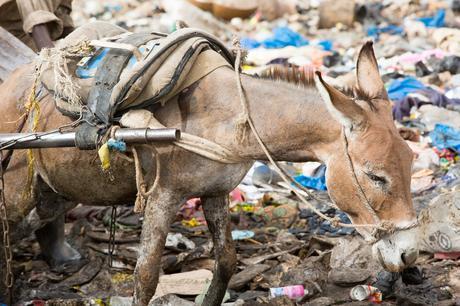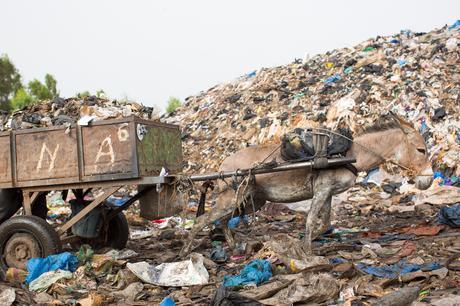
New research has unveiled a list of the most annoying office lingo used in British workplaces, although 'donkey work' failed to make it on there.
The survey, commissioned by SPANA, which provides free veterinary treatment to working animals in developing countries throughout the world, found office workers in Britain can't stand to hear cheesy phrases such as 'it's on my radar', 'touch base offline' and 'peel the onion'.
Seven in 10 workers admit they completely switch off if their boss starts saying things like 'think outside the box' or 'strategic staircase', while four in 10 are often completely baffled by their boss, and don't understand a word they are saying.
The aim of the research is to highlight the differences between working life in Britain and the hard conditions faced by working animals in developing countries. There are at least 200 million horses, donkeys, camels and other working animals, which do the jobs of trucks, tractors and taxis, and are relied upon completely by the world's poorest people for their livelihoods.
Jeremy Hulme, chief executive of SPANA, said: "It's clear that office jargon is a source of annoyance and confusion for British workers in workplaces up and down the country. If you've ever sat in a meeting wondering what on earth colleagues are talking about, it seems you're not the only one.
"However, although office language can be an irritating part of working life, these sorts of problems seem minor compared to the tough working conditions endured by many working animals overseas.
"In Britain, 'donkey work' in the office might mean an unwelcome amount of photocopying. But, the reality for donkeys and other working animals is entirely different. These animals often work very long hours, carrying heavy loads, in baking temperatures. Like their owners, they won't ever get to enjoy the luxury of holidays or retirements, and most animals have no access to vital veterinary treatment when they become sick or injured."
Through the free veterinary treatment it provides, SPANA is helping working animals in some of the worst workplaces in the world. Places like the rubbish dumps of Bamako in Mali.

In Bamako, Mali's capital city, young men and women - often just children - survive on the meagre income they earn bringing the city's rubbish to these towering, stinking piles of burning refuse. But of course it is the donkeys that undertake the really hard work, pulling rubbish carts up precipitous slopes, often surviving by eating whatever they find on the dumps.
Under a relentless sun, their lives are as hard as any working animal that SPANA helps. The loads are heavy: donkeys can be lifted off their feet by the sheer weight of the rubbish. Most harnesses are homemade, with ropes rubbing constantly against untreated, open wounds. There is no retirement to look forward to for these animals. Life is short, and many will become infected with tetanus, an agonising fate. But even here, there is hope.
In the middle of the city's largest dump, SPANA's country director, Dr Amadou Doumbia gets to work helping as many sick and injured donkeys as he can. He and his team visit regularly with their mobile clinic. They lack the resources to reach all the dumps, but here the difference is remarkable.
For these rubbish dump donkeys, life remains tough. But each day they finish work in the early afternoon, retiring to a purpose-built shelter that keeps them out of the intense sun. Here they receive feed and water, and SPANA vets are on hand to treat any injuries, while vaccinating against tetanus and other deadly diseases.
Old, worn saddle pads can be exchanged and owners receive instruction on how to care for their animals humanely. Life will always be hard for these animals - and for the people who work them. But free veterinary care, owner education, feed, rest, water, shelter and padded harnessing have transformed the lives of these hardworking animals and alleviated their suffering. So much more needs to be done but here, as elsewhere, the difference SPANA makes is clear.
For more information about SPANA please visit www.spana.org
